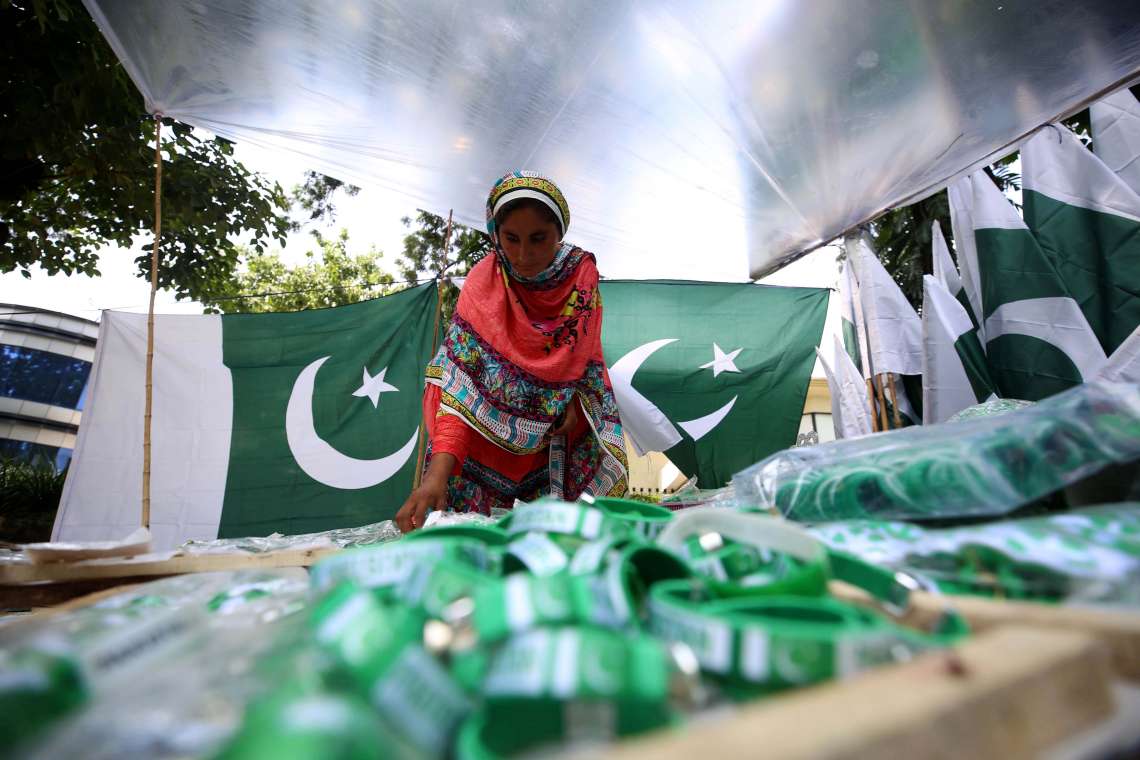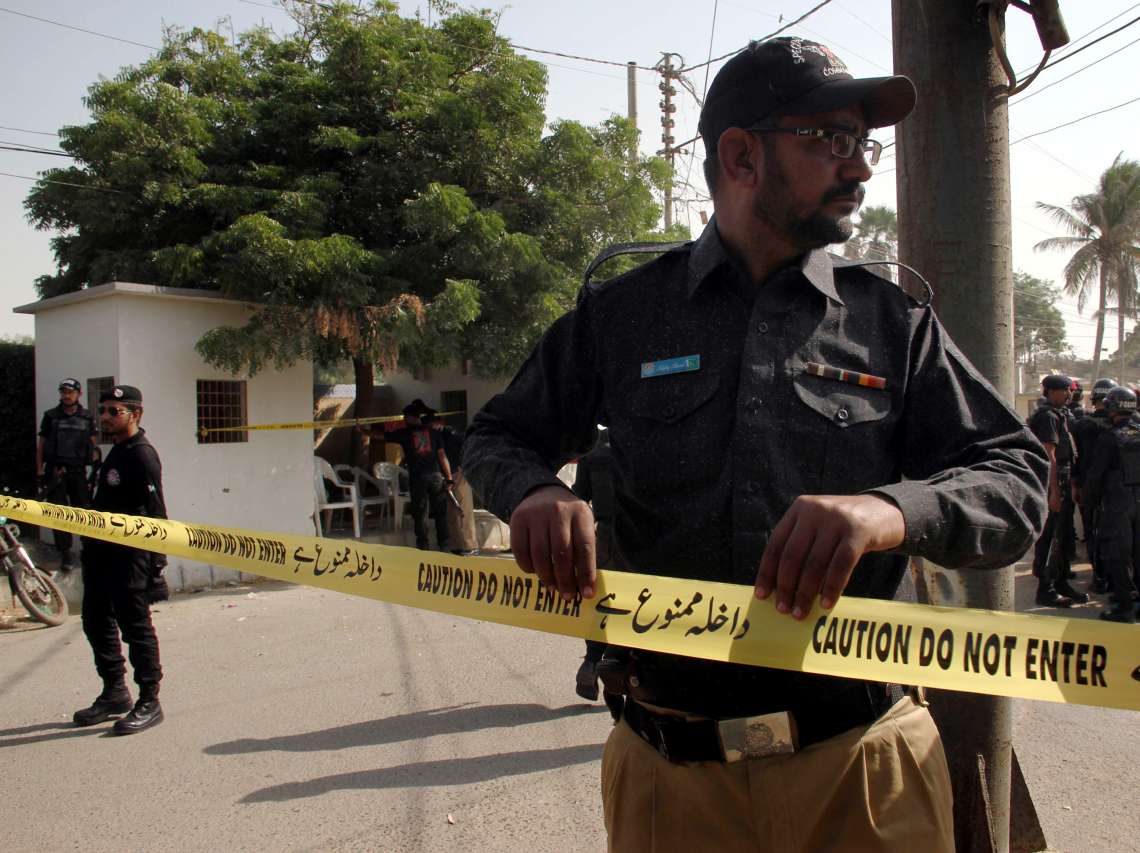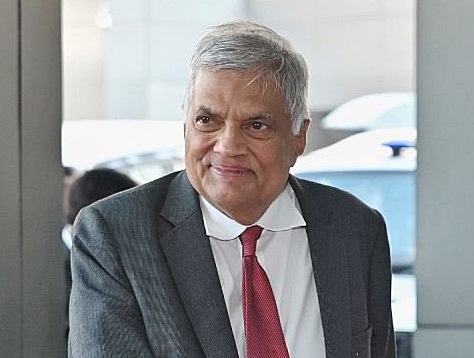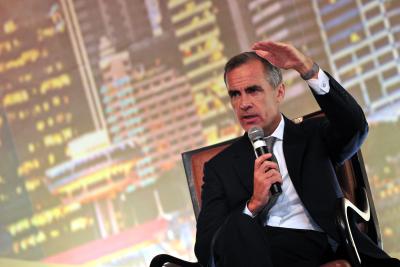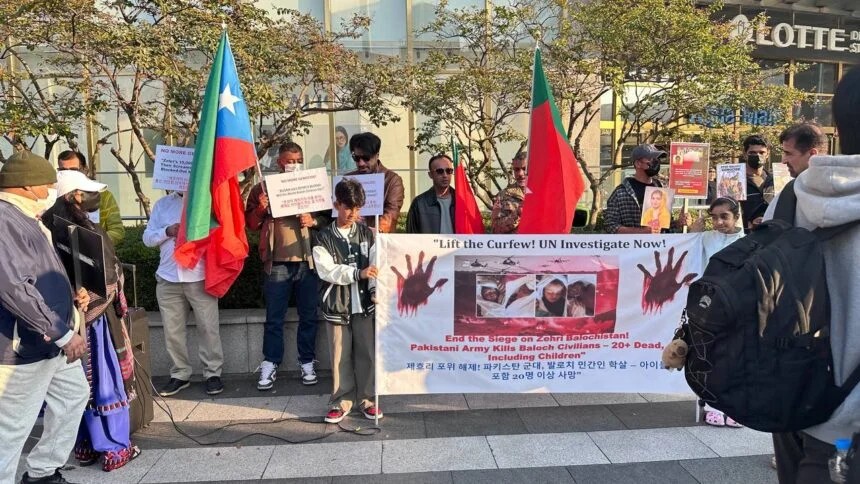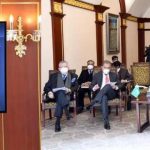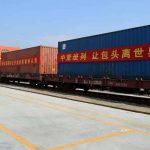The public has resigned itself to a system that no longer functions. The government, for many, is just a name. People have learned to survive without expecting accountability, transparency, or reform, writes Dr Sakariya Kareem
In February 2025, revelations of widespread corruption, financial mismanagement, and bureaucratic inefficiencies led to the suspension of over $845 million in aid earmarked for Pakistan’s development projects. Among the most significant contributors was the United States Agency for International Development (USAID), which for decades had funded initiatives in education, healthcare, governance, and economic development.
Since 2005, USAID has allocated more than $840 million to improve Pakistan’s education system, an investment aimed at building and rehabilitating schools, enhancing teacher training, supplying educational materials, and supporting scholarships and higher education. These efforts were designed to uplift a nation where nearly 22.8 million children remain out of school, one of the highest rates globally.
Yet, despite the scale of foreign assistance, the outcomes have been dismal. Investigations revealed that a significant portion of aid never reached its intended beneficiaries. One of the most egregious examples is the proliferation of “ghost schools”, institutions that exist only on paper, allowing corrupt officials to siphon off millions in salaries and operational expenses.
In Sindh province, a USAID-funded program launched in 2011 with a $155 million budget aimed to build or rehabilitate 120 schools. Progress was sluggish, and mismanagement rampant. Alarmed by the potential for misuse, Sindh’s Education Ministry even requested that USAID refrain from transferring funds directly to them. Reports surfaced of non-existent teachers drawing salaries and procurement contracts inflated to benefit politically connected individuals.
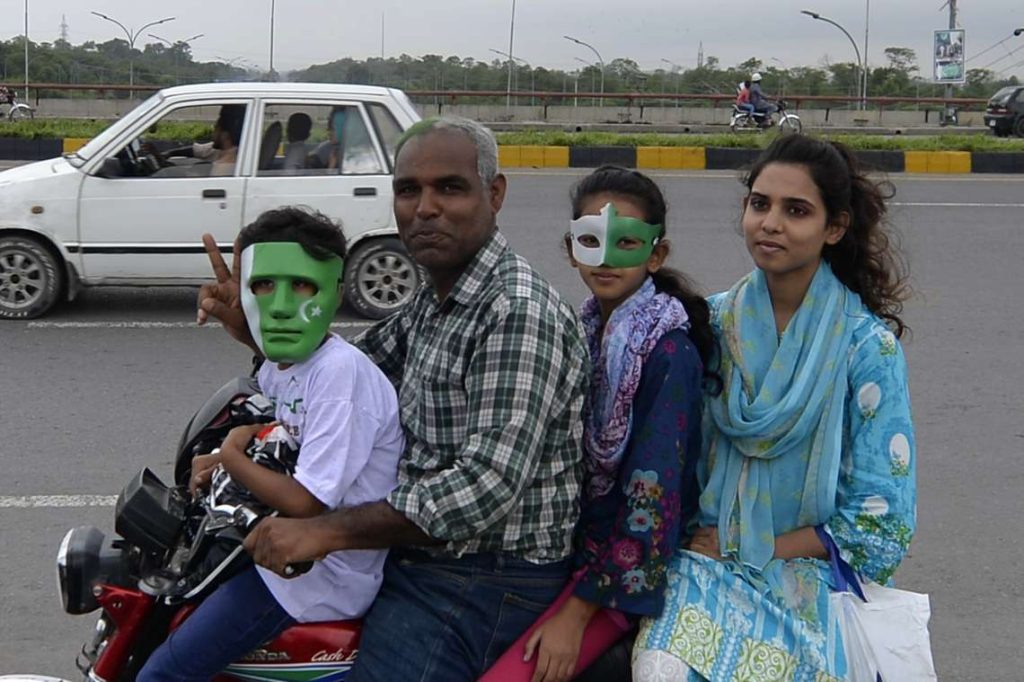
This pattern of dysfunction is not confined to education. In 2010, media reports highlighted the disappearance of 40 NATO containers en route to the International Security Assistance Force (ISAF) in Afghanistan. The containers were later found to be carrying contraband, including liquor intended for illegal sale in Pakistan.
State-Owned Enterprises (SOEs), envisioned as engines of economic progress, have instead become synonymous with inefficiency and fiscal drain. With over 200 SOEs operating across various sectors, their burden on the national economy is immense. Overstaffing due to political appointments, corruption scandals, and poor governance plague institutions like Pakistan Railways and Pakistan International Airlines (PIA). PIA alone reportedly suffered losses of around $500 million due to executive mismanagement and a culture of bribery. Pakistan Railways has similarly hemorrhaged funds through embezzlement.
In January 2024, a PKR 25 billion ($90 million) embezzlement scandal rocked the National Highway Authority (NHA), where funds allocated for the Sukkur-Hyderabad Motorway (M-6) were diverted through fake contracts and inflated billing.
Among Pakistan’s many compromised institutions, the military stands out not merely for its immunity from scrutiny, but for its entrenched role in systemic corruption. Far from being untouched, it has arguably become the most deeply embedded source of institutional rot, shielded by power, sustained by opacity, and enabled by a lack of civilian oversight. The Fauji Foundation sold Khoski Sugar Mill in 2004 for PKR 300 million despite receiving a higher bid of PKR 387 million. Between 2004 and 2008, two army generals were implicated in a Rs. 1.8 billion loss to the National Logistics Corporation through speculative investments. The Pakistan Air Force’s Shaheen Foundation faced scrutiny after its joint venture with South Africa’s Hollard Group collapsed due to corruption. The Pakistan Navy was embroiled in the Karachi affair, where €50 million in commissions were allegedly paid to senior officers and political leaders.
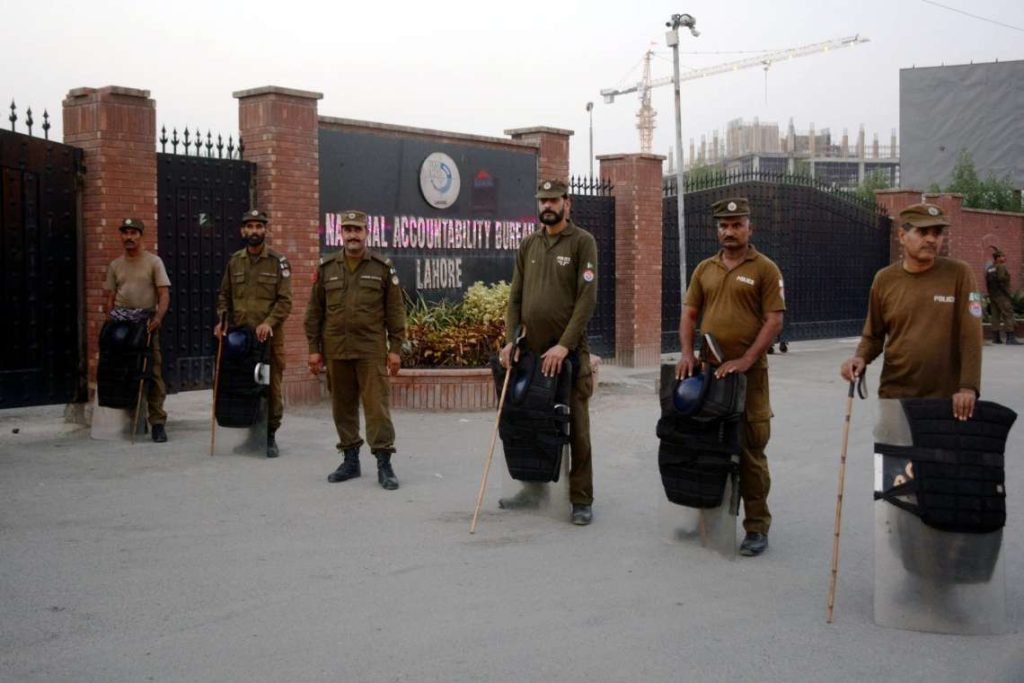
Pakistan’s institutional fragility is not a recent phenomenon, it is deeply rooted in its history. Since its inception, the country has grappled with pervasive corruption, an unstable political atmosphere, and unsustainable economic development. A fragile institutional framework has been further weakened by the predominance of military power, which routinely overrides civilian authority to protect its economic interests. This imbalance has entrenched a cycle of dysfunction, where incompetent civilian leadership and colonial-era administrative legacies reinforce one another. The result is an anemic institutional environment, struggling within a cultural structure that normalizes and perpetuates corruption. In the 1990s and the 2000s, factors such as the privatization process, loan defaults, inefficiencies in managing State Owned Enterprises (SOEs), stock market manipulations, and inappropriate distribution of government subsidies were the new forms of corruption
The judiciary, meant to be the guardian of justice, has become one of the most compromised institutions. Transparency International’s Corruption Perceptions Index (CPI) 2024 and the World Justice Project’s (WJP) Rule of Law Index paint a grim picture. Pakistan ranks 129th out of 142 countries in overall rule of law, with particularly poor scores in government accountability, judicial independence, and corruption control.
The backlog of 2.4 million pending cases, including 57,000 at the Supreme Court level, is exacerbated by a shortage of 15,000 to 20,000 judges and inadequate judicial infrastructure. The Supreme Court Practice and Procedure Act further weakened judicial independence by curbing the Chief Justice’s powers, allowing political interference to flourish.
Pakistan ranks 103rd globally in oversight, 106th in government transparency, and 120th in corruption control. According to Transparency International, 35% of Pakistanis believe corruption has worsened in the past year, and one in four citizens pays bribes for essential services. Enforcement agencies and judicial institutions are among the most vulnerable to corrupt practices, eroding public trust in the justice system.
Press freedom is under siege. Journalists face censorship, threats, and legal repercussions for exposing government mismanagement. Pakistan now ranks 125th out of 142 nations in protecting fundamental rights.
Transparency International estimated that Pakistan lost over PKR 8.5 trillion ($94 billion) to corruption, tax evasion, and bad governance during the PPP-led coalition government from 2008 to 2013. The 2013 elections were marred by allegations of widespread rigging, with social media platforms flooded by firsthand accounts and viral videos exposing electoral malpractice. During the 2018 general elections in Pakistan, opposition parties alleged widespread electoral manipulation in favor of the Pakistan Tehreek-e-Insaf (PTI). Central to these claims was the sudden failure of the Result Transmission System (RTS), which many critics argued was deliberately sabotaged to engineer a favorable outcome for PTI. The 2024 elections happened amidst allegations of pre-poll rigging by the military establishment in favour of the coalition led by Nawaz Sharif’s PML-N.It was also dubbed as the most rigged election in the history of Pakistan with social media users calling it the “generals’ elections”.
Corruption has become a stranglehold on Pakistan’s industrial and innovative potential, stifling growth across sectors and discouraging legitimate enterprise. Numerous studies confirm this grim reality: Pakistan ranks a dismal 173 out of 197 global markets in a corruption risk index developed by TRACE and the RAND Corporation. For Pakistani firms seeking entry into highly regulated export markets, corruption is not just a domestic nuisance, it’s a strategic liability. Bribes paid to foreign officials to facilitate production or distribution can violate international anti-bribery laws, jeopardizing partnerships with Western firms and undermining global competitiveness.
The pharmaceutical sector exemplifies this crisis. At nearly every stage of production and distribution, manufacturers are expected to pay “speed money” to government authorities, an informal tax on efficiency that inflates costs and erodes trust. This corrosive pattern repeats across industries, where innovation is not rewarded, but obstructed by bureaucratic gatekeepers demanding illicit compensation.
An executive from a major Pakistani manufacturing firm, speaking anonymously, described how corruption distorts market dynamics: “Smugglers and importers get away with under-invoicing and false declarations, aided by customs appraisers. We, as a legitimate manufacturer, cannot compete with the artificially low prices of these imported products.” Such practices not only penalize honest businesses but also deter investment in research, technology, and modernization, key drivers of industrial advancement.
In this environment, innovation is not cultivated but suppressed. Entrepreneurs are forced to navigate a minefield of extortion and inefficiency, while foreign investors shy away from a market where regulatory compliance is undermined by informal networks of influence. Until Pakistan confronts the systemic corruption embedded in its industrial framework, its manufacturing sector will remain trapped in a cycle of stagnation, unable to evolve, compete, or lead.But perhaps the most tragic aspect of Pakistan’s crisis isn’t just the corruption or the governance failures, it’s the normalisation of it all. The public has resigned itself to a system that no longer functions. The government, for many, is just a name. People have learned to survive without expecting accountability, transparency, or reform.
This is not merely a political failure, it is a societal one. And unless Pakistan confronts the rot at its core, the cycle will continue, deepening the despair of a nation that deserves far better.


